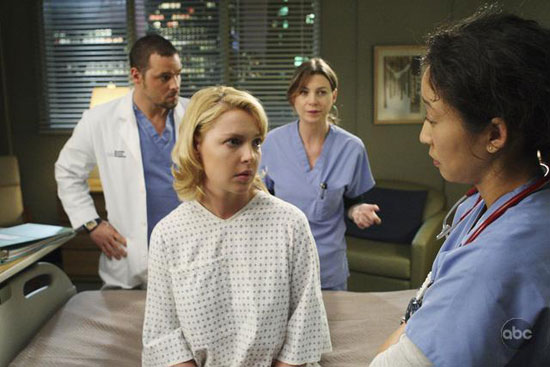June 19, 2023

Early on in my five-year research stint on young adult cancer, I learned about the down sides of the American Cancer Society. They have no direct support services, education, or research targeted to young adult cancer patients. But let’s not throw the baby out with the bath water. Here is why I love American Cancer Society anyway.
Check this out: Young adults are the largest group of underinsured and uninsured adults in the United States. This plays a huge part in our delayed diagnosis, and is a big reason why young adult cancer survival rates have not budged in 30 years. Health insurance is one of our biggest barriers to survival, but who in the cancer community is stepping up the plate to talk about this? Almost nobody but the American Cancer Society’s Cancer Action Network (ACS CAN).
I got a press release from ACS yesterday that calls upon Congress to enact legislation that will ditch evil pre-existing condition exclusions from health insurance. ACS CAN is asking legislators to make sure subsidies are available for cancer patients who can’t afford treatment. ACS CAN spoke out about improving access to palliative care and so much more. I get emails daily from young cancer survivors writing about these very issues.
When I was writing a section in my book about how young adult cancer survivors can make a difference, ACS was the only cancer org I found mobilizing to influence long lasting change around access to healthcare. Only they truly understood that we have to use the power of our voices and votes to change cancer survival rates. What could be more worthwhile?
Do you support the American Cancer Society? Have you participated in fundraising efforts or action center? What other kinds of services have they provided you with during cancer?


May 17, 2023

Disclaimer: I live under a rock, don’t own a TV, and have never read a print copy of USA Today. I’m pretty okay with all three statements.
Kudos to Grey’s Anatomy for: showing young adult cancer along with family and fertility issues, illustrating melanoma as a serious deadly disease, and revealing that advanced cancers do not have a quick fix solutions but involve super challenging choices between two evils with no guarantee for favorable results… if you are lucky.
But, damn Grey’s for not getting it right. An article in USA Today says Izzie’s options not accurate: surgery, with memory loss as a side effect, or interleukin-2. American Cancer Society confirmed that IL-2 is never recommended for melanoma brain mets because it can cause bleeding and strokes.
Grey’s consults with MDs, so why can’t they get it right? Are they just dialing up the drama on the storyline? I’ve been living with cancer for nine years and there is plenty of drama to go around with my story just from the very accurate and real life details.
Does Grey’s do more harm than good with this storyline? Good: It spurs discussion and awareness. This article highlights one of my all time favorite orgs, Planet Cancer, and quotes JT, one of the most amazing people I’ve ever met.
But consider this quote from Otis Brawley, the chief medical officer at ACS: “Many people view the cancer problem as much simpler than it actually is. That’s because they get their medical information from television shows. But television shows are by and large fictional, and much of the medical information there is also going to be fictional.”
Do you watch Grey’s? Does the storyline do more harm than good? What does it say that instead of covering healthcare policy, a major American newspaper is covering the TV coverage of a fictional cancer patient? And have I just lowered my standards by blogging about a USA Today article?


May 13, 2023

Shannon and I are ditching our car for two months and seeing what life is like. (Evil Chicago potholes caused $1,800 of damage to our car, and we don’t want to shell out the cash to fix it.)
In a way I’m glad - it is forcing me to actually do something that I often complain about: get serious about cancer and the environment. Did you know that four major chemicals released by car engines are proven to cause cancer in animals and humans?
I’m not going to change the world or reduce young adult cancer incidence rates. In fact, I think it is dangerous to think that individual actions, like using CFL light bulbs or buying eco-crap, are going to solve the decline of our environment. Nope, for that we need tougher regulations on car emissions, investment in public transit, and more walkable communities.
But until then, I am glad to be trying out a life that is just a tad bit less hipocritical…. how can I bitch about cancer and the environment while I’m driving my car everywhere?
Having no car has been an adjustment and sometimes frustrating. But there are some big time benefits too: I get more exercise, meet more neighbors walking, and read more and see cute kids on the bus. Plus we joined a non-profit car share so we have wheels for big errands. This would not have worked if I still had treatment fatigue, and I might not like it come winter. We’ll see…
How often do you drive? Do you ever equate daily activities of your life with carcinogenic output? If you have had major illness, treatment, surgery, did it affect your driving habits? Have you ever used the American Cancer Society’s Road to Recovery program?



![]()
![]()


 “Everything Changes is, without doubt, the most forthright, emotionally sophisticated, and plain-old valuable book of its kind I've seen.”
“Everything Changes is, without doubt, the most forthright, emotionally sophisticated, and plain-old valuable book of its kind I've seen.”












